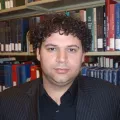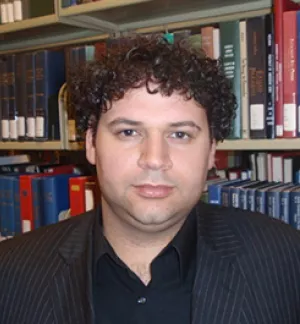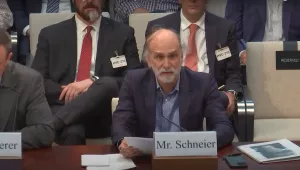In 2004, Rep. Peter King stated that 80% to 85% of mosques in America were controlled by Islamic fundamentalists and amounted to "an enemy living amongst us." In 2007 he said, "Unfortunately we have too many mosques in this country" and called for FBI surveillance and infiltration of mosques because that's where terrorists were being "homegrown."
Just a month ago he repeated the claim that over 80% of mosques are controlled by radical imams. Now, he is holding a congressional hearing to expose the radical elements of Islam in America.
In direct contrast to his claims, a study we conducted -- the Muslim American Public Opinion Survey (MAPOS) -- found that mosques and religiosity are actually associated with high levels of civic engagement and support for the American political system. Our study interviewed 1,410 American Muslims across the nation and asked questions about the importance of religion, civic and political participation in the United States.
Throughout the history of America a special relationship has existed between religious institutions and social and political integration. While specific religion was kept at arms length from government sponsorship, churches and religion played an important role in the political development of America. As different ethnic groups came to America, churches and religiosity have often served as a source of community, and ultimately integration into American life.
Germans, Irish and Italian Catholics faced obstacles to incorporation in early America, and many faced outright religious discrimination, yet their church ties led them to greater civic engagement.
Later waves of newcomers also relied on their religious institutions, most notably Jewish Americans, Latinos and Koreans, who have integrated quickly into American life through their religious associations. Scholars such as Eric McDaniel have found churches were a source of strength and community, encouraging democratic participation in American society for African-Americans throughout the second half of the 20th century.
In the years since 9/11, and most recently since the Ground Zero mosque controversy, the loyalties and patriotism of American Muslims have come under considerable scrutiny. Muslims living in the United States are being investigated for potential ties to terrorists. The roles of Muslim institutions and cultural centers are being questioned. Unfortunately, little empirical evidence or data has been offered in this debate.
Despite news headlines often sensationalizing the potential for "homegrown terrorists" there is no systematic data whatsoever to support the claim that mosque involvement or religiosity among American Muslims is associated with anti-American attitudes or behavior. Anecdotes are not data.
By contrast, in the late 1990s when Eric Rudolph was wanted by the FBI for a series of anti-abortion bombings, his Christian identity and religious motivations for the bombings did not prompt the media to question the loyalties of all Christians, nor did Congress hold hearings investigating Christian churches as breeding grounds of terrorist abortion bombers. It was clearly seen that this was one bad apple and not representative of all Christians.
In our study, completed in 2008, and supported by a research grant from the Social Science Research Council, and in an independent survey by the Pew Research Center, the data clearly point to an American Muslim population that is middle-class, assimilating quickly and highly supportive of the American political system.
The MAPOS study of Muslim Americans is the largest in the United States to date, and addresses various questions from Islamic teachings and their compatibility with the American political system, to mosque attendance and its association with political participation in and incorporation into American politics.
Our findings suggest that an association exists between higher levels of involvement in mosque-related activities and participation in American politics. Thus, mosques serve as important religious institutions that are no different than the roles churches and synagogues play in their communities.
Specifically, the MAPOS study finds that as Muslims report being more involved in their mosque, they also report being more actively involved in American politics. Princeton professor Amaney Jamal published research findings from a pilot study in New York that mosque involvement fosters civic participation. Our findings are further evidence of this with a national sample.
On a range of political activities such as voting, writing a letter to a government official, donating money to a campaign or attending a community meeting, those with no connection or involvement to the mosque report an average of 1.7 acts of political participation. In contrast, those who say they are very involved with the mosque report an average of 2.6 political acts per year -- a 53% increase in civic engagement.
In addition to mosque involvement, respondents to the survey were asked how closely they followed religious teachings in their daily lives. Combining mosque involvement and religious commitment into an overall scale of religiosity reveals further positive associations between religion and civic participation. For example, 70% of those with the lowest level of religiosity indicate they follow news about elections closely, compared to 81% who follow elections closely on the high end of the religiosity scale.
Finally, we find those with high levels of religiosity are overwhelmingly likely to believe that Islam is compatible with political participation in the United States. While 77% of those with the lowest levels of religiosity feel Islam is compatible with political involvement in America, 95% of those who are most religious feel Islam is compatible with American politics.
While there are examples of isolated cases of Muslim individuals who have allegedly committed crimes (Nidal Malik Hasan, the psychiatrist facing charges of killing 13 people at Fort Hood in 2009), they are individual bad apples, similar to Eric Rudolph, cited above. Our national data set clearly shows that no pattern of "radicalization" exists with religiosity and mosque attendance.
Despite the popularized idea that Muslims are radicalized around the country in mosques, we find that, overwhelmingly, mosques help Muslims integrate into U.S. society, and in fact have a very productive role in bridging the differences between Muslims and non-Muslims in the United States.
This is a finding in social science that is consistent with decades of research on other religious groups such as Jews, Protestants and Catholics where church attendance and religiosity has been proven to result in higher civic engagement and support for core values of the American political system.
American mosques are institutions that should be encouraged to function as centers of social and political integration in America.
Editor's Note: CNN's Soledad O'Brien chronicles the dramatic fight over the construction of a mosque in the heart of the Bible belt. "Unwelcome: The Muslims Next Door", airs Sunday, March 27 at 8 p.m. E.T.
The opinions expressed in this commentary are solely those of Karam Dana and Matt Barreto.
To read the article on CNN.com, please click here.
Dana, Karam. “Mosques are a positive force in America.” March 9, 2011



